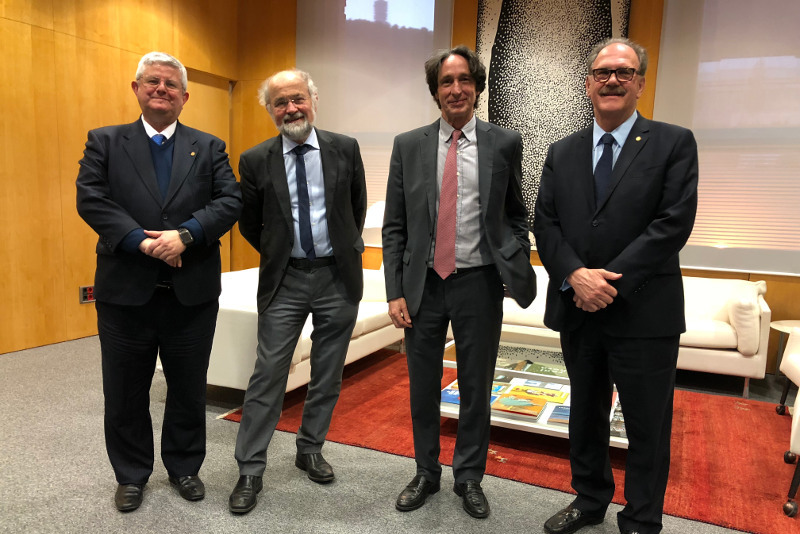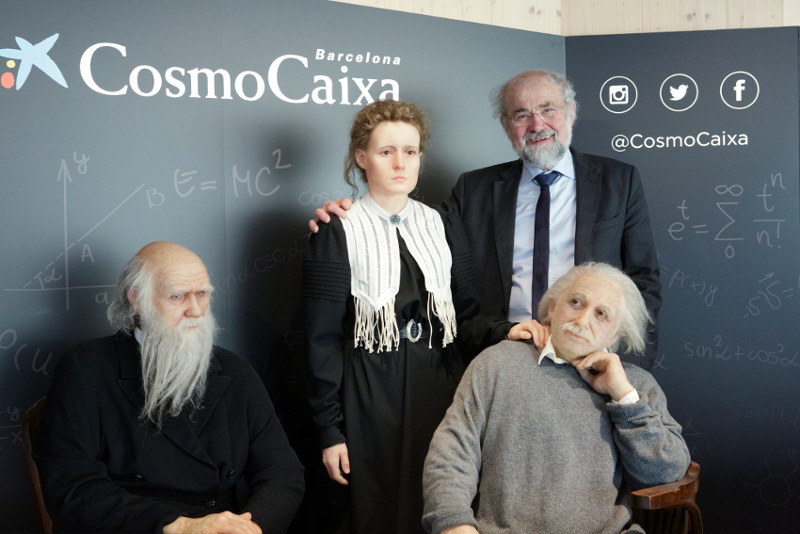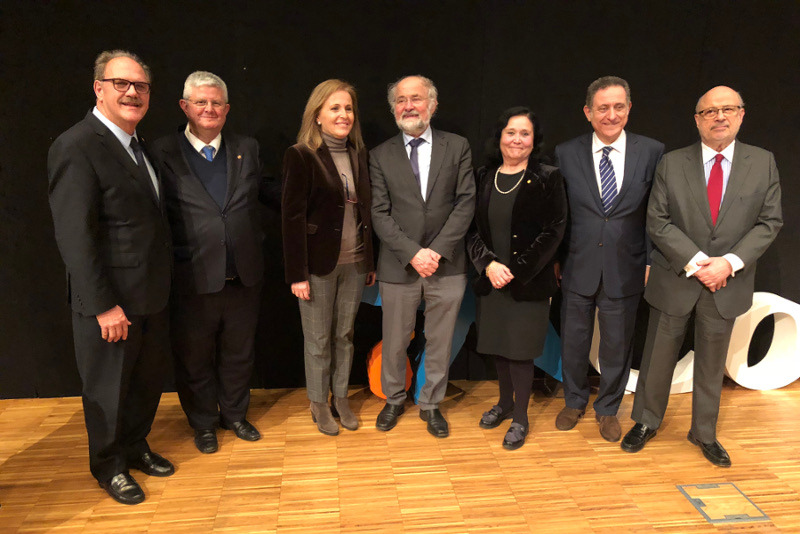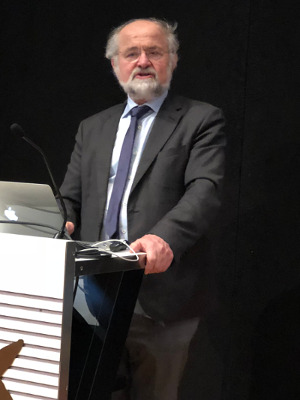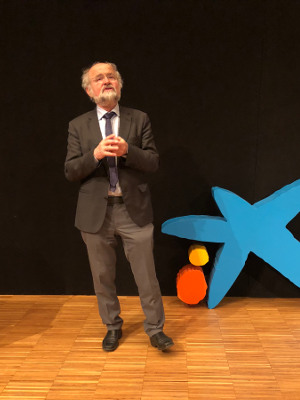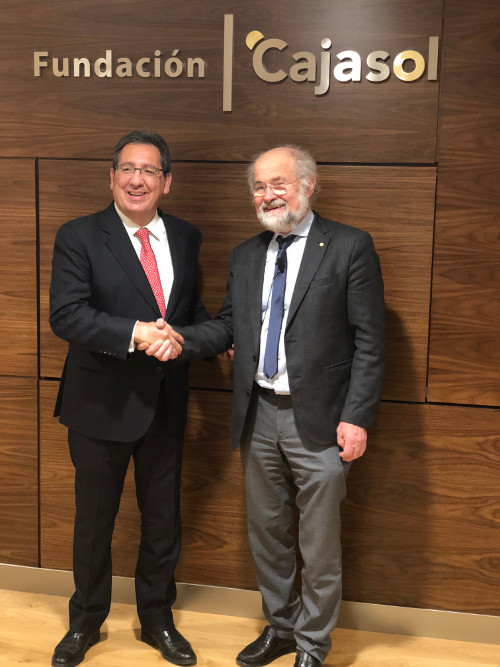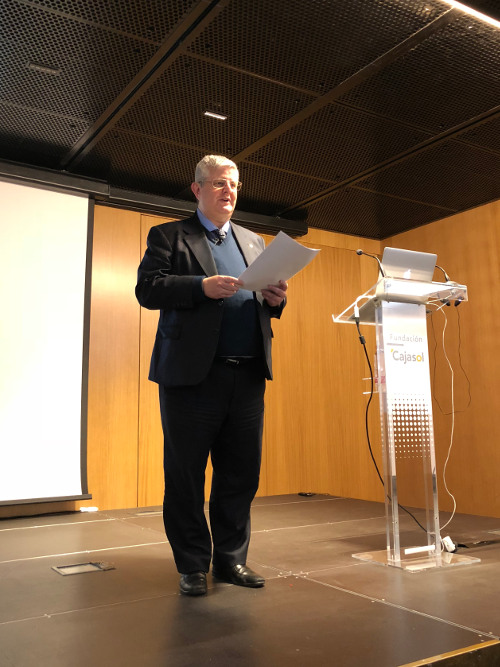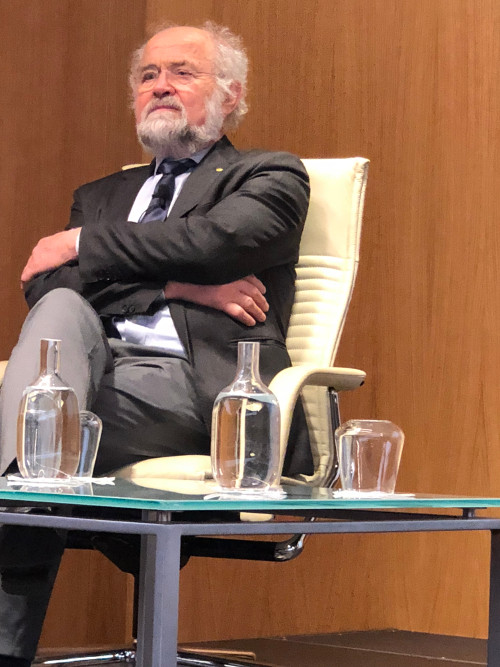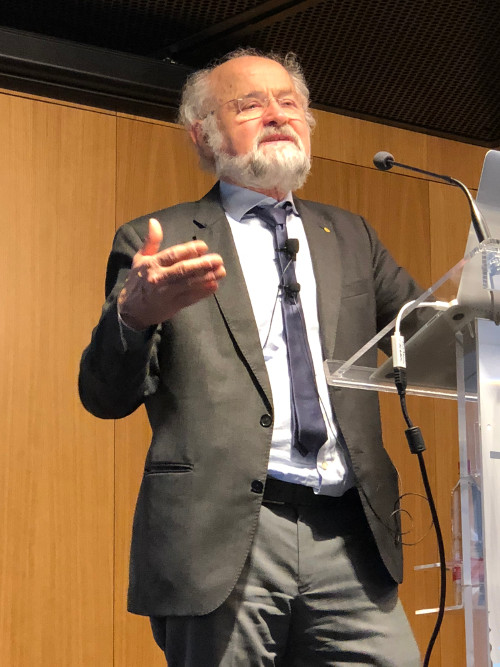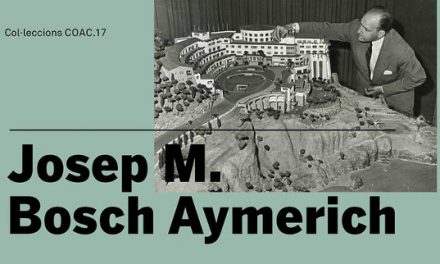The possibility of reaching and acting in a discriminated way on certain cells presents enormous advantages for medicine and pharmacology
Erwin Neher, Nobel prize in Medicine and honorary academician of the Royal European Academy of Doctors-Barcelona 1914 (RAED), has occupied a prominent place in the cycle “La ciencia vista a través de los ojos de Premios Nobel” (Science seen through the eyes of Nobel prizes winners) that is celebrated in the CosmoCaixa of Barcelona organized by the Obra Social La Caixa and will complete “Talento Nobel” (Nobel Talent) program that the Cajasol Foundation celebrates in Seville. Both forums, the main ones on scientific dissemination that are celebrated today in Spain, have been promoted by the Royal Academy.
Neher starred in the session held on February 20 in Barcelona under the title “Ionic channels: their discovery, their functions and their role in medicine and pharmacology”. The same conference that will take to Seville on the 22nd. In it, the Nobel explained how since he and Bert Sakmann discovered in the 70s of the last century the existence of ion channels in nerve and muscle cells, recent research has confirmed that these transmission channels are present in virtually all types of cells in our body. The possibility of reaching and acting in a discriminated way on a certain type of cells presents enormous advantages for medicine and pharmacology. “Now we know that these channels are the main targets of medicines, and that their underlying dysfunction is a growing variety of diseases”, said Neher.
Nobel prize in Medicine for the studies that initially defined the biophysical and molecular bases of the transmission of information between neurons, he put his work as an example of how his research, which didn’t pursue more than to expand knowledge about the functioning of the brain, has served to treat diseases such as Parkinson’s, Alzheimer’s, schizophrenia or autism, among others. “To understand such complex diseases, we have to understand the cellular process behind it, which is a clear example of how basic research leads to important applications”, he said.
The cycle “La ciencia vista a través de los ojos de los Premios Nobel” will continue with the participation of Richard Roberts (Nobel prize in Medicine in 1993), who on March 22 will present “A crime against humanity”; Jerome Friedman (Nobel prize in Physics in 1990), who on April 26 will offer the talk “Are we really made of quarks?”, and Sheldon Glashow (Nobel in Physics in 1979), who will close the cycle on June 7 with the conference “Accidental discoveries in science”. The winner of Nobel Prize for Chemistry and honorary academician of the RAED Aaron Ciechanover and the likewise honorary academician and Nobel Laureate in Chemistry Ada Yonath have also participated in these sessions and those held in Seville.
CosmoCaixa | Obra social La Caixa
- Dr. José Ramón Calvo – Dr. Erwin Neher – Dr. Jordi Portabella – Dr. Alfredo Rocafort
- Dr. Rocafort – Dr. Calvo – Dra. Vallcorba – Dr. Neher – Dra. Calvo – Dr. Gallucci – Dr. Añoveros
Cajasol Foundation
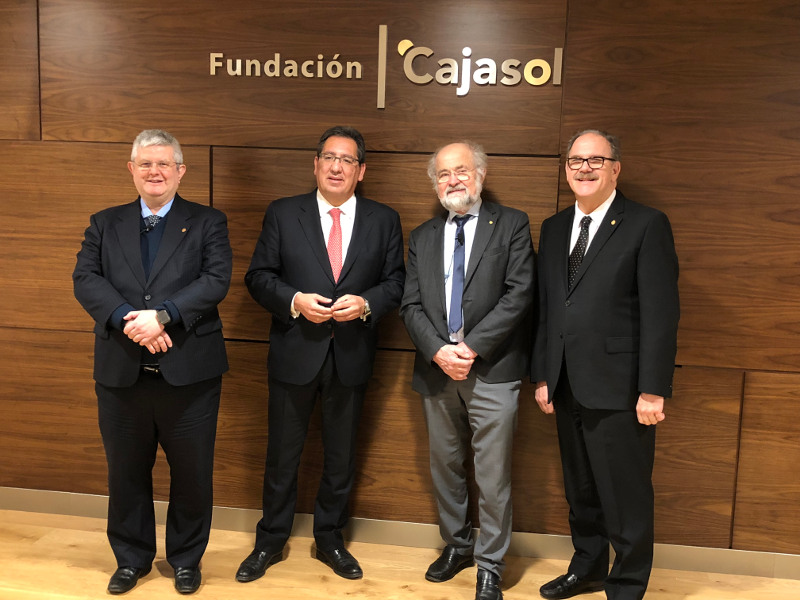
- Dr. Antonio Pulido – Dr. Erwin Neher


